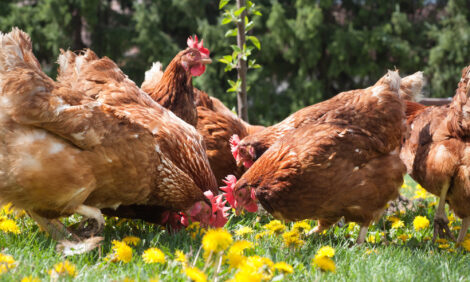



Report: Benchmark for Action Needed to Avoid Future Disasters
GLOBAL - Despite international efforts to address food insecurity, around 108 million people in the world were severely food insecure in 2016, a dramatic increase compared with 80 million in 2015, according to a new global report on food crises released in Brussels on 31 March 2017.The report, whose compilation required integrating several measurement methodologies, represents a new and politically innovative collaboration between the European Union and United States Agency for International Development (USAID), regional food security institutions together with UN agencies including the Food and Agriculture Organization (FAO), the World Food Programme (WPF) and Unicef. The European Commission's Joint Research Centre (JRC) - developed methodologies for analysing the global situation in the food crisis hot spot areas contributed to the report.
The dramatic increase reflects the trouble people have in producing and accessing food due to conflict, record-high food prices in local markets and extreme weather conditions such drought and erratic rainfall caused by El Niño.
Civil conflict is the driving factor in nine of the 10 worst humanitarian crises, underscoring the strong linkage between peace and food security, says the Global Report on Food Crises 2017 report.
By joining forces to deliver neutral analytical insights drawn from multiple institutions, the report - to be issued annually -- enables better-informed planning decisions to respond to food crises in a more timely, global and coordinated way.
Around €8.8 billion are devoted by the EU to food, nutrition security and agriculture for the period 2014-2020, with €525 million to address food crisis. For humanitarian food and nutrition assistance in particular, the European Commission's annual average budget in the last 5 years was around EUR 540 million, with a peak in 2016, with over EUR 620 million for this sector.
"Political initiatives to tackle global food crises must be based on trusted, independent and sound science in order to be effective and supported by all stakeholders. I am very pleased that the European Commission's science and knowledge service, the Joint Research Centre (JRC), provided a solid scientific foundation to this report using its excellence in analytical methodologies and modelling" commented Tibor Navracsics, Commissioner for Education, Culture, Youth and Sport, responsible for the Joint Research Centre.
"This report highlights the critical need for prompt and targeted action to effectively respond to the food crises and to address their root causes. The EU has taken leadership in this response. In 2016, we allocated €550 million already, followed by another €165 million that we have just mobilized to assist the people affected by famine and drought in the Horn of Africa," said Neven Mimica, Commissioner for International Cooperation and Development.
"The report is the outcome of a joint effort and a concrete follow-up to the commitments the EU made at the World Humanitarian Summit in Istanbul, which identified the urgent need for transparent, independent but consensus-based analysis of crises. I hope this document will be a strong tool for the whole international community to improve the coordination of our responses to crises," added Christos Stylianides, Commissioner for Humanitarian Aid and Crisis Management.
Most critical situations are worsening
This year, the demand for humanitarian and assistance aimed at building resilience will further escalate as four countries are at risk of famine: South Sudan, Somalia, Yemen and northeast Nigeria. Other countries that require massive levels of humanitarian assistance because of widespread food insecurity are Iraq, Syria (including refugees in neighbouring countries) Malawi and |Zimbabwe. In the absence of immediate and substantive action, the food security situation in these countries will continue to worsen in coming months, according to the new report.
"The cost in human and resource terms only increases if we let situations deteriorate," said Food and Agriculture Organization (FAO) Director-General José Graziano da Silva. "We can prevent people dying from famine but if we do not scale up our efforts to save, protect and invest in rural livelihoods, tens of millions will remain severely food insecure."
"The numbers tell a deeply worrying story with more than 100 million people severely food-insecure, a level of suffering which is driven by conflict and climate change. Hunger exacerbates crisis, creating ever greater instability and insecurity. What is a food security challenge today becomes tomorrow's security challenge," said Ertharin Cousin, Executive Director of the World Food Programme (WPF). "It is a race against time - the world must act now to save the lives and livelihoods of the millions at the brink of starvation."
The 108 million people reported to be facing severe food insecurity in 2016 represent those suffering from higher-than-usual acute malnutrition and a broad lack of minimally adequate food even with external assistance. This includes households that can cope with their minimum food needs only by depleting seeds, livestock and agricultural assets needed to produce food in the future. Without robust and sustained action, people struggling with severe food insecurity risk slipping into an even worse situation and eventual starvation.









